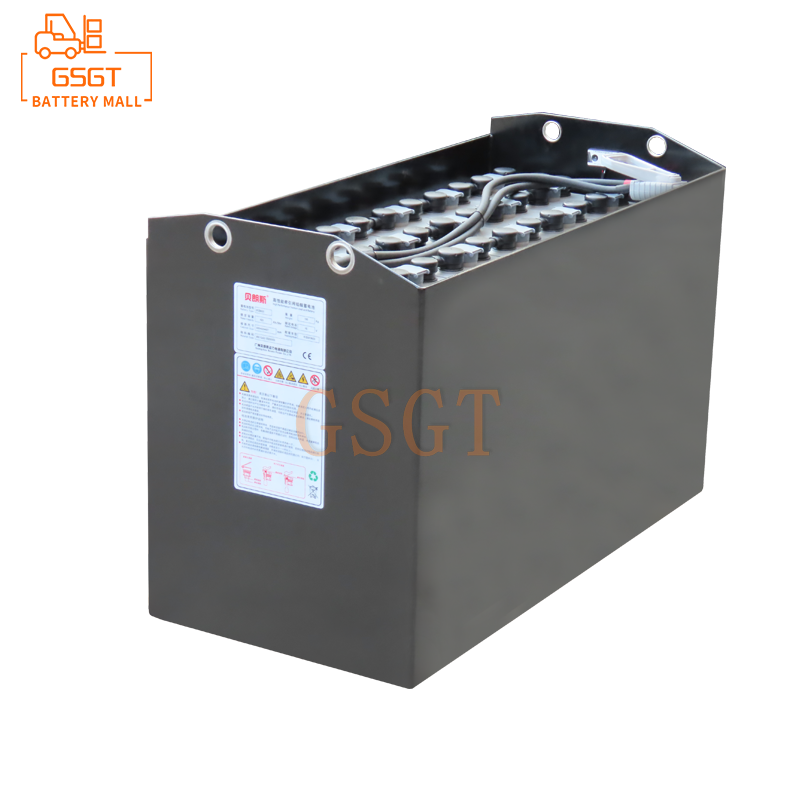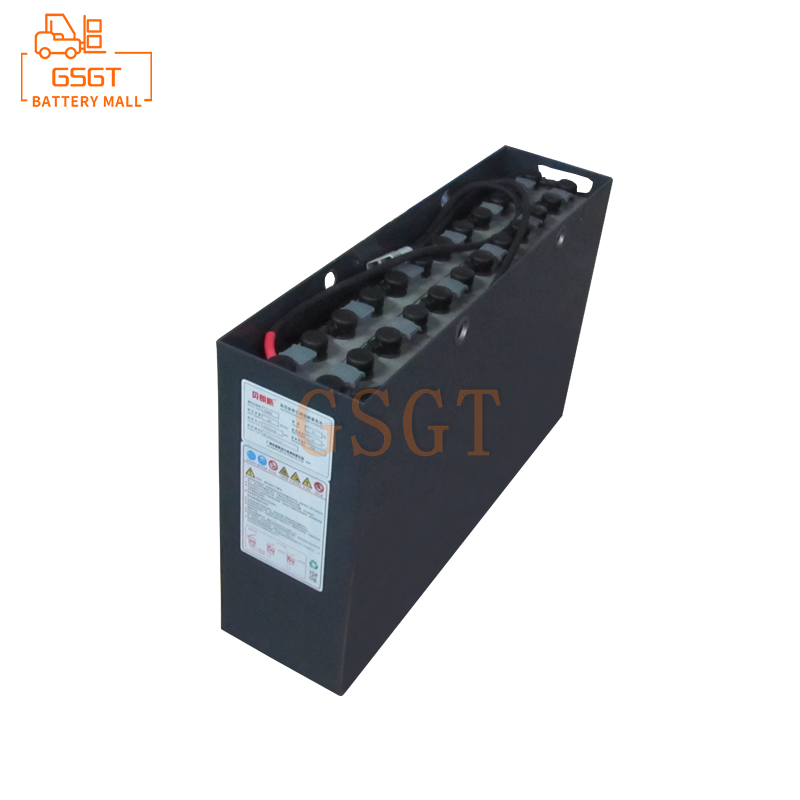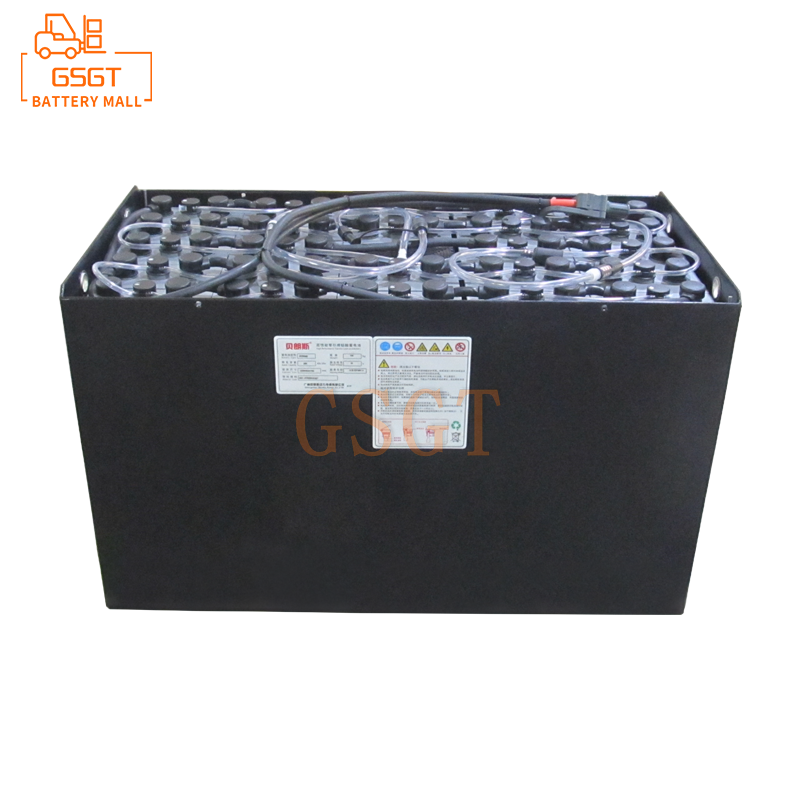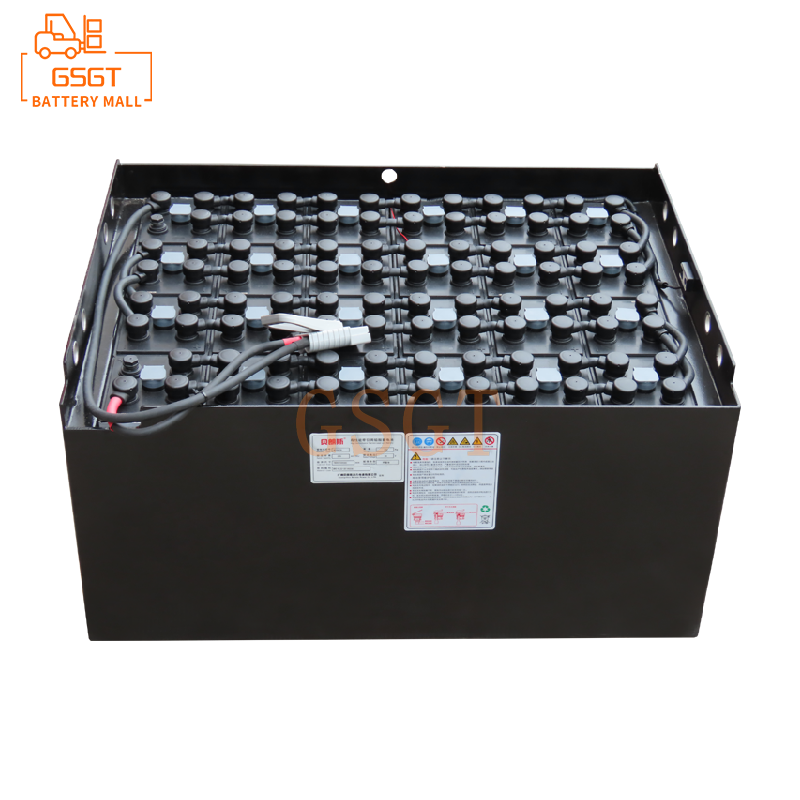Time:2025-06-04 09:36:23
Browse:710
Introduction
Lead-acid batteries have been widely used in the forklift field due to their advantages such as mature technology, low cost, and good high-rate discharge performance, providing stable power for electric forklifts. However, if not used properly, it will not only significantly shorten the battery life and increase operating costs, but also may cause serious safety accidents. Understanding and avoiding the usage restrictions of lead-acid batteries in forklift applications is of great significance for ensuring the efficient and safe operation of forklifts.
Environmental restricted area
High-temperature environment
The internal chemical reactions of lead-acid batteries are significantly affected by temperature. When the ambient temperature exceeds 45℃, the gas evolution rate of the battery accelerates during charging, water evaporation intensifies, causing the electrolyte to dry up, the plates to sulfate more quickly, the internal resistance of the battery to increase, and the capacity to decline rapidly. For instance, during the high-temperature period of summer, if forklifts operate or charge for a long time under direct sunlight outdoors, the battery life may be shortened by 30% to 50%. Moreover, high temperatures can increase the internal pressure of the battery, posing a risk of causing the battery casing to bulge or even rupture. Leakage of the electrolyte can also corrode the forklift components and the surrounding environment.
Low-temperature environment
When the ambient temperature is below -20 ℃, the viscosity of the electrolyte increases, the diffusion rate of ions slows down, the internal resistance of the battery rises significantly, and the charging and discharging performance deteriorates sharply. When a forklift starts, the battery cannot provide a large enough current, making it difficult to start or even impossible to start. Continuous low-temperature discharge will also significantly reduce the battery capacity. For instance, in an environment of -30 ℃, the actual available capacity of the battery may only be about 50% of that at normal temperature, seriously affecting the operational efficiency of forklifts. Meanwhile, the utilization rate of active substances on battery plates decreases at low temperatures. Long-term exposure to a low-temperature environment can cause irreversible damage and shorten the battery's lifespan.
High humidity environment
In a high-humidity environment with a humidity exceeding 80%, condensation is prone to form on the surface of forklift lead-acid batteries, causing corrosion and rusting of metal components such as battery terminals and connecting plates, and increasing contact resistance. This not only affects the battery's charging and discharging performance, but may also cause local overheating and accelerate battery aging. In severe cases, corrosion may cause the connecting plates to break, resulting in an open circuit in the battery and causing the forklift to suddenly lose power, which may lead to safety accidents during operation. Moreover, in a high-humidity environment, the battery casing is also prone to corrosion, which reduces the protective performance of the casing and increases the risk of electrolyte leakage.
Strong acid, alkali and corrosive gas environment
Lead-acid batteries are extremely sensitive to acids, alkalis and corrosive gases. If forklifts operate in places with a risk of leakage of strong acid or alkali liquids, such as chemical workshops, once the electrolyte comes into contact with strong acids or alkalis, a violent chemical reaction will occur, causing changes in the internal components of the battery, damage to the plates, and the battery to fail instantly. In addition, in an environment with large amounts of corrosive gases such as chlorine and hydrogen sulfide, these gases will undergo chemical reactions with the battery casing and terminals, corroding the battery, reducing its performance, shortening its service life, and may even cause gas leakage, posing a threat to the health of operators.
Operation restricted area
Excessive discharge
If a lead-acid battery continues to discharge after reaching the terminal voltage, it is considered over-discharge. When over-discharged, a large amount of lead sulfate is generated on the plates and the crystalline particles become larger, blocking the micro-pores of the plates. The electrolyte is difficult to penetrate, resulting in an increase in the internal resistance of the battery and a significant decrease in capacity.
High current discharge
When a forklift starts, accelerates or climbs a slope, if the operation is too forceful, the battery will instantly output a large current. High current discharge will cause the active substances on the surface of the battery plates to fall off rapidly, resulting in plate damage, increased internal resistance and reduced capacity of the battery. Long-term high-current discharge operations may shorten the battery life by 20% to 30%, and also increase the risk of battery overheating or even fire, seriously endangering the safety of forklift operations.
Frequent charging and discharging
Lead-acid batteries have a limited charge and discharge cycle life. Frequent charging and discharging will accelerate the aging of the plates and the shedding of active materials. For instance, if forklifts perform short-distance operations multiple times a day and are charged after each operation, the battery will prematurely enter the decline period. Frequent charging and discharging may reduce the number of cycles and significantly increase the cost of battery replacement.
Reverse charging
When charging the lead-acid battery of a forklift, it is essential to ensure that the positive and negative terminals are connected correctly. If the positive and negative terminals of the charger are mistakenly connected in reverse, reverse charging will occur. Abnormal chemical reactions will happen inside the battery, generating a large amount of gas and causing a sharp increase in the internal pressure of the battery. This may lead to the rupture of the battery casing, leakage of the electrolyte, and even an explosion, resulting in serious casualties and property losses.
Maintain the restricted area
Improper charging
Charging the lead-acid battery of a forklift with an unmatched charger, if the output voltage and current of the charger do not match the battery, may lead to insufficient charging or overcharging. Insufficient charging causes sulfation of the battery plates, resulting in a decrease in capacity. Overcharging will cause the electrolyte to boil, a large amount of water to evaporate, the active material on the plates to fall off, and the battery life to be shortened. Moreover, if the environment is poorly ventilated during the charging process, the hydrogen gas produced by the battery accumulates and is prone to explosion when exposed to an open flame. Excessively high or low charging environment temperatures can also affect the charging effect and battery life.
Neglect the maintenance of the electrolyte
The liquid level and density of the electrolyte in lead-acid batteries are crucial to the battery's performance. If the electrolyte level is not checked for a long time, the low level will expose the plates to the air, leading to oxidation and sulfation of the plates and a decrease in battery capacity. If the liquid level is too high, the electrolyte is prone to overflow during charging, corroding the battery and forklift components. In addition, the density of the electrolyte is not appropriate. If the density is too high, it will accelerate the corrosion of the plates; if it is too low, the battery capacity will decrease. At the same time, it is strictly prohibited to add non-distilled water or substandard supplementary liquid, otherwise impurities will contaminate the electrolyte and affect the battery performance.
Improper battery connection
Forklift lead-acid battery packs are composed of multiple individual batteries connected in series or parallel. When connecting, if the terminal posts are not firmly connected, the contact resistance will increase, which will cause local heating during charging, accelerate the corrosion of the terminal posts, affect the battery's charging and discharging performance, and even cause a fire. Moreover, if the material of the connecting piece does not meet the requirements or the specification is too small, it will be unable to withstand the large current during battery charging and discharging, which will also cause the connecting piece to burn out and prevent the battery from working normally.
Neglect the appearance inspection of the battery
In daily use, if the battery casing is not checked in time for any damage or bulging, it may not be noticed when the internal pressure of the battery rises or the electrolyte leaks, which will aggravate the battery damage. The leakage of the electrolyte may also corrode the forklift components, causing greater losses. In addition, ignoring whether the terminal posts are corroded or loose will affect the reliability of battery connection and further impact the stability of forklift operation.
Summary
Lead-acid batteries have many usage restrictions in forklift applications, covering aspects such as the environment, operation, and maintenance. Forklift operators and maintenance personnel must strictly abide by relevant regulations and avoid these forbidden zones to ensure the safe and efficient operation of lead-acid batteries, extend the battery's service life, reduce operating costs, guarantee the safety of forklift operations, and provide reliable support for the smooth progress of enterprise production activities.

$2450

$1060

$3260

$5710

MESSAGE
Professional And Efficient
Security
Affordable Price
Professional Services